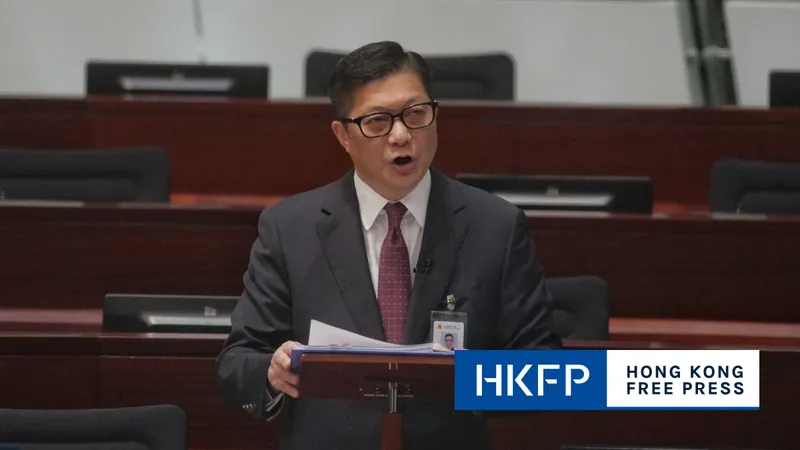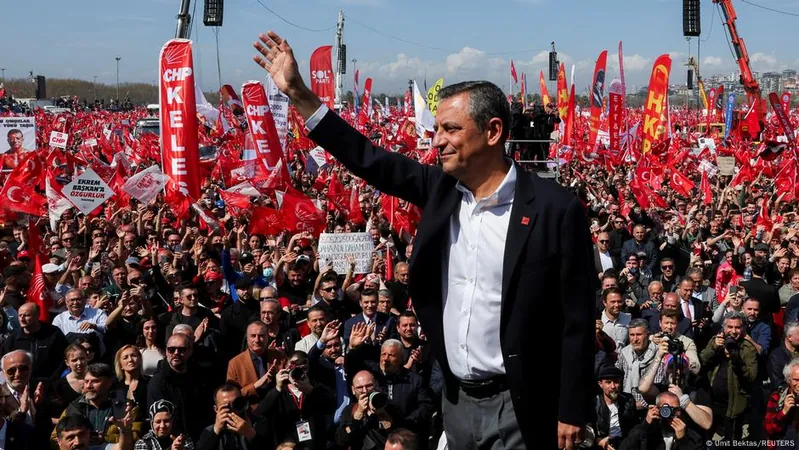
Hong Kong Security Chief Shies Away from USAID Funding Queries Amid National Security Concerns
2025-03-20
Author: Wai
Introduction
In a gripping standoff over national transparency and security, Hong Kong's Secretary for Security, Chris Tang, declined to provide information regarding potential funding from the US Agency for International Development (USAID) to local organizations. This revelation came after prominent lawmaker Junius Ho raised questions about whether local NGOs had received financial support from foreign entities, specifically naming USAID and the National Endowment for Democracy (NED).
Concerns over National Security Law
The inquiry follows concerns related to Hong Kong's own national security law, known as the Safeguarding National Security Ordinance, often referred to as Article 23. This legislation stipulates strict regulations on local organizations accepting overseas funding that stems from political bodies, with the authority to ban any deemed threats to national security.
USAID's Funding History
Ho's assertions suggested that USAID has a history of funding NGOs that could jeopardize the national security of their operating regions. However, Tang remained tight-lipped about any specifics, stating that discussions regarding national security measures 'cannot be disclosed.' His written response emphasized that Article 23 grants authorities the power to prohibit operations of organizations perceived as endangering national security, including those that may be in receipt of foreign funding.
Challenges Faced by USAID
Amid this backdrop, it's worth noting that USAID has faced unprecedented challenges. Funding frameworks have been jeopardized, particularly following shifts in US political leadership. Former President Donald Trump initiated a significant freeze on foreign aid soon after returning to office, significantly impacting USAID's operations. Additionally, controversial statements by influential figures like Elon Musk have cast a shadow over the NED, which has reported difficulties accessing its appropriated funds, resulting in the suspension of support for thousands of partners globally.
Lack of Documented Funding Transactions
Despite the speculation surrounding USAID's potential funding to Hong Kong organizations, investigations reveal no documented records of such transactions over the past five years.
Criticism of the National Security Ordinance
The Safeguarding National Security Ordinance itself remains a highly contentious piece of legislation, facing backlash from rights organizations, Western nations, and the United Nations. Critics argue that its vague and broad definitions could be leveraged to stifle dissent and freedom of speech, especially in light of mass protests witnessed in 2019.
Implications for Civil Liberties
Moreover, recent amendments to Article 23 have raised alarms over the implications for civil liberties, allowing for extended pre-charge detention and restrictions on legal counsel for suspects.
Conclusion
As political tensions continue to escalate in Hong Kong, the implications of foreign funding on national security will undoubtedly remain a hotly debated topic. Observers are left to wonder how these developments will unfold, particularly with looming fears of further erosion of civil rights in the region. Stay tuned as we continue to report on this evolving situation, bringing you the latest updates on Hong Kong's national security measures and their impact on the city's civil society.



 Brasil (PT)
Brasil (PT)
 Canada (EN)
Canada (EN)
 Chile (ES)
Chile (ES)
 Česko (CS)
Česko (CS)
 대한민국 (KO)
대한민국 (KO)
 España (ES)
España (ES)
 France (FR)
France (FR)
 Hong Kong (EN)
Hong Kong (EN)
 Italia (IT)
Italia (IT)
 日本 (JA)
日本 (JA)
 Magyarország (HU)
Magyarország (HU)
 Norge (NO)
Norge (NO)
 Polska (PL)
Polska (PL)
 Schweiz (DE)
Schweiz (DE)
 Singapore (EN)
Singapore (EN)
 Sverige (SV)
Sverige (SV)
 Suomi (FI)
Suomi (FI)
 Türkiye (TR)
Türkiye (TR)
 الإمارات العربية المتحدة (AR)
الإمارات العربية المتحدة (AR)